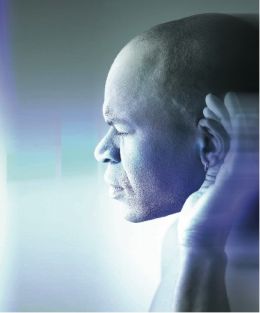Do you tell yourself any of the following things?
“I already know what I need to do; I already know what my conscience/soul/God tells me to do.”
“I already listen to myself; my problem is that I don’t DO it!”
“I’m too busy to do an Integral Deep Listening interview.”
“Interviewing a life issue or dream character is too long and complicated.”
“Why should I listen to imaginary creations of my own mind?”
“Interviewing is impractical. My time is better spent (making money/exercising/on the computer/watching TV/meditating/eating, etc.)”
“I won’t tell myself anything I don’t already know.”
I worked weekly for some months with a lady that was so depressed that she was in a mental hospital. She was diagnosed at one point as bipolar and at another as having a psychotic depression. She was on strong medications and her doctors were encouraging her to do a series of shock treatments. She did perhaps some thirty interviews over perhaps that many weeks. That’s a lot. The feedback she consistently got from interviewed emerging potentials was that they weren’t depressed; they didn’t crowd out positive feelings by constant negative thinking, like she did. These interviewed perspectives related her depression to how she thought, which implied a cognitive-behavioral approach to treatment. While this client was good at doing interviews, she did not feel that they were making much difference. However, she was not very good at following up on the many recommendations that came out of them, such as getting out of the role of victim, smiling, become this or that high-scoring emerging potential at low times, reading over interviews, especially before sleep, stop analyzing, go with the flow, remember to breathe, stop hesitating, see the humorous, joyful side of life today, and letting go of pain from the past. She broke off work in discouragement and I did not hear from her for ten months. After that time, when I enquired after her health, she said that she did not know why or how, but that she had made a miraculous recovery and that she had no depression. She was happier with her life than she has been in a long time! She said that she was experiencing much joy and living in the here and now.
Such a complete recovery is shocking, even if it doesn’t last. Was it simply a manic phase of a cycling bipolar disorder? Was it a temporary reaction to some unexpected good luck? Would she have a relapse? Assuming that her recovery is genuine and lasts, this is an outcome that is difficult to explain by attribution to traditional drug or psychotherapeutic methods, particularly since she had been exposed to many while she was in-patient for months.
All life forms are self-regulating and not only seek equilibrium, but attempt to grow. When we listen to emerging potentials that are these things – self-regulating, seeking of equilibrium, and that want to grow – then those responses are much more likely to occur. However, what makes growth based on integral deep listening different is that this growth begins from the inside out instead of the outside in, which is the approach that we normally take when we consult a doctor, go to a seminar, or do something to try to help. It is organic, like physical maturation, learning to walk, or talk, which are normal human aptitudes that young humans achieve as part of inborn neuronal competencies. These types of natural, organic growth are not often obvious to the person themselves, because they are too subjectively enmeshed in the process to observe the changes. As biological clocks slow, internally motivated development tends to stop. We require tools that connect us to sources of authentic development. For humans, physiological clocks are supplemented and then replaced by cultural clocks: family, educational, and occupational scripting. But these are not organic; they are not intrinsic to us. They are external in etiology, even if we take them, become them, and incorporate them as habit, conscience, or “God’s will.”
Integral Deep Listening is different, and it is this difference that stirs up resistance from external familial, educational, religious, and political cultures and from your own sense of comfort, security, and stability. Neither of these want to hear perspectives that contradict the established status quo. This is because these do not support changes recommended by emerging potentials that vary from their own values and perspectives.
What to do? The more that you do integral deep listening interviewing, both of yourself and others and apply the recommendations in your life the more you create an authentic internal culture. The more you share this culture with others by teaching them how to find and follow their inner compass the more quickly you will create an external reality or macrocosm that reflects back to you the best that is within you. As Gandhi famously said, “You must be the change you wish to see in the world.” Confucius put it like this:
If there is righteousness
in the heart,
there will be beauty
in the character;
If there is beauty
in the character,
there will be harmony
in the home;
If there is harmony in the home,
there will be order
in the nation;
If there is order
in the nation,
there will be peace
in the world.

